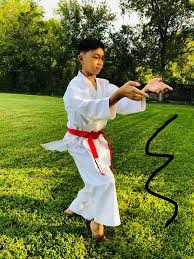Karate’s coming to mainland Japan is a historic event in the history of the sport. At the beginning of the twentieth century, Gichin Funakoshi an Okinawan karate practitioner was invited to give a display on karate in Tokyo. Appreciated by skill and order of an art Japanese audience embraced karate and therefore it contributed to integration in Japanese martial arts community.
It was Funakoshi who started carrying out rigorous standardization of this martial art and that had a role to play in its propagation. For this, he also wrote several books for the purpose of teaching Karate, as well as for introducing individuals to the martial art form, they also set up the ‘’Japan Karate Association’’ to give formal education and training to the practitioners. That is why he paid much attention to the idea of karate development making it even grown during the period of its development.
The growth and development of this fighting skill was progressed and was extended to an international level. In the period after World War II the American GIs in Japan came across karate and taken it back with them to America. This called for interest from across the world, where scuools and organizations for karate started being formed.
Currently karate is practiced by millions of individuals worldwide helping to create an ongoing historical narrative. Sharing the hangover of the systematic evolution of martial arts from the ancient era of dojos in Japan to the contemporary scenario of training centres in the west, Karate’s set theories of discipline, respect and self enhancement have influence the people enthusiastic towards martial arts across the world.
Principles and Philosophy of Karate
Core Principles
Respect and Etiquette
Karate is steeped in manners and politeness share the foundations of the martial arts discipline. As soon as a student joins the dojo, he or she is taught the principles of self-respect, respect for instructors, fellow students and the martial art in practice. This respect is carried out through what may be referred to as rites of Karate which are fully imbedded in the Karate tradition.
One of the real forms of respect is the bow or “rei” which is done at the onset and at the end of each class, and before and after engaging in sparring or any form of training in kata. The bow is an expression of the practitioners’ respect, of having thankful hearts and the understanding that both of them are equal. It is a constant reinforcement that karate is not just an art of fighting but also of maintaining proper attitude in the dojos.
That is why manners are not limited to bowing only. It covers student to student relationship, cleaning of the dojo, and compliance with dojo standards. For instance, student’s culture entails that they should refer to their instructors as Sensei – the teacher and follow instructions to the letter. They also have to ensure that the place is clean and tidy the concept being that one’s environment should always be like their state of mind.

Discipline and Self-Control
Pride and perseverance, are basic principles of karate that apply to every part of a person’s life. In karate discipline is also acquired from the regular training and the way the techniques are practiced. A practice called “keiko” – this mental and physical repetition lays into the students the muscle memory and accuracy into the body movements.
Training also involves mental discipline, since it is not easy for a candidate to undergo the normal training while at the same time undergoing the process of training. Students are aware that they need to spend time on their techniques and avoid mistakes but also can practice calmly for a long time. It is quite important for the progression in karate because in this practice, students have to learn how to deal with failures and obstacles.
Other principle of the karate is “Seishin” which refers to self control. It is discouraged for practitioners to be emotional, have uncontrolled thoughts and unsuppressed actions in or out of the dojo. This control is most crucial when performing a repertoire or during sparring and self-defense drills where the issue of balance and composure might be determinate to success or failure. Each self-control develops in the process of Karate training helps to control the emotions while exercising and make a reasonable decision when facing the opponent.